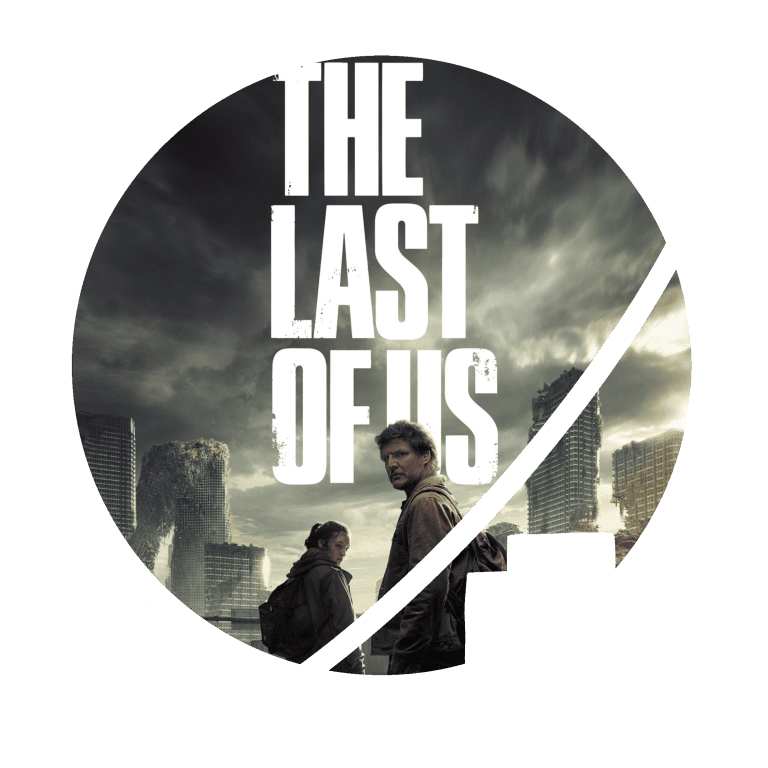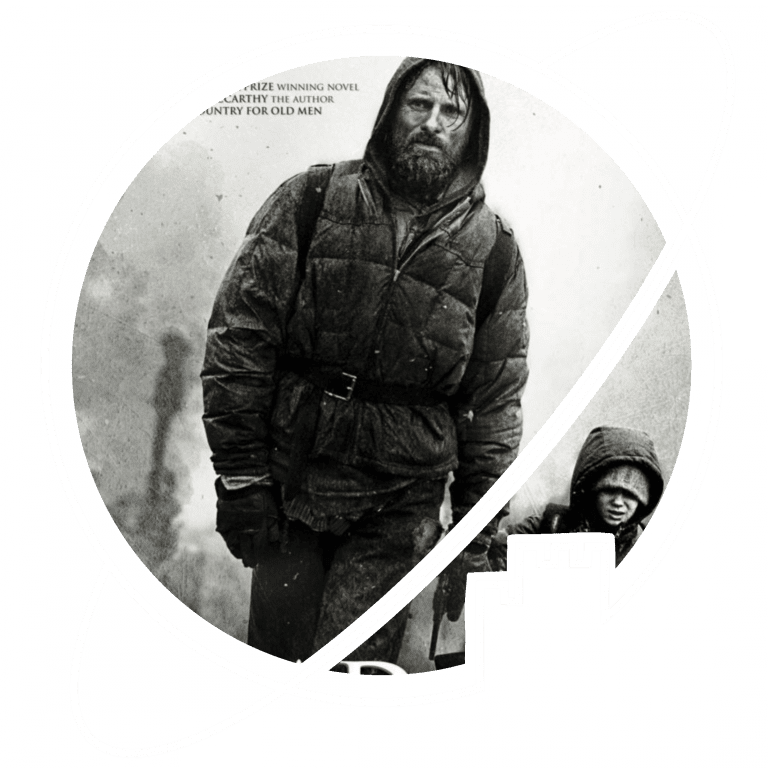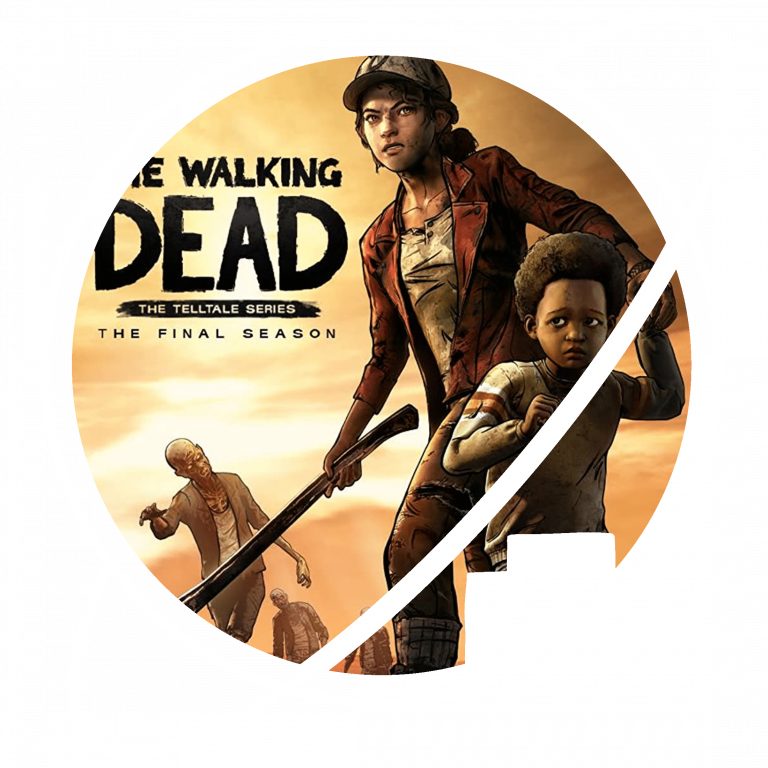- TV show developed by Craig Mazin and Neil Druckmann for HBO Max
- Released 15 January 2023
- Starring Pedro Pascal and Bella Ramsey
- 1 Season of 9 Episodes, renewed for a second season
Global society collapsed after a fungus turning people into zombies spread like a wildfire. Joel is a world-weary smuggler used to a life out of sight of what remains of the authorities. Ellie, on the other hand, is a sassy teenager growing up in a dreary post-apocalyptic world, whose importance neither she nor Joel can grasp. When Joel is tasked to take Ellie on a dangerous trip across country, he is (understandably) less than thrilled.

I’d heard a lot about the game The Last of Us but have never had a PlayStation to play it on. So no. I don’t think any of us have played the game.
I actually ended up watching this show twice. I had already watched the first episode when we decided it would be our next show to watch together. I decided to continue watching the show even though I knew I would be seeing it again. The first episode just really gripped me, and I didn’t want to have to wait.
I really loved The Last of Us. I liked the way it was a zombie story based on a video game, but there’s barely any zombie fighting in the show. We don’t get scenes of Joel gunning down hordes of zombies unless it’s absolutely necessary for the plot. We’re all scared of the infected, but they’re mostly background noise. The Last of Us is not unique in this, though. I think most zombie stories use the setting as a way of exploring how humanity behaves when all the rules of society have gone out the window. It works really well.
Much like my fellow curators, I loved the casting of this show. Pedro Pascal and Bella Ramsey do a phenomenal job as Joel and Ellie. I was particularly charmed by Bella Ramsey.
While I did love the show, I’m a little conflicted on the topic of adapting a video game (or any medium) for television or film. I think as a society we have this idea that TV and Film are a superior form of media, and the highest honour a book or comic, or in this case, a video game can reach is being adapted for the screen. I’d like to challenge that assumption and say that I think some stories are best told in other ways. I think video games are a phenomenal medium because they put the player at the centre of the action. If the main character in a movie does bad things, you get to judge them from the outside. When the main character in a video game does bad things, that’s the Player doing those things. It’s you. I’d argue that the psychological experience is very different.
Another game that’s being adapted for the small screen is 2K’s Bioshock. While I’m very excited about it because I love Bioshock, I also know that the central theme of the game is choice. The story works so well in a game, because as the player you are constantly the one making those choices. The Last of Us explores the question of “how much violence can we use to protect the ones we love?” I’d argue that this question is explored better in a medium where we ourselves commit that violence than in one where we merely observe it from the outside.

Before I dive in, a quick disclaimer: I never played the The Last of Us-video game, so I can’t comment on the series’ accuracy to the source material. I did, however, notice a number of very video gamey moments in the cinematography of the series, be they the frequent over-the-shoulder camera angles, the awkward split ups between the characters, the boss-zombies, or even the moments when a companion disappears just as you round a corner. And I love that! It’s (mostly) pretty subtle, but if you play(ed) games a lot it’s sure trigger that ‘I see what you did there’-feeling.
So, aside from faithfully bringing a video game to the small screen, is The Last of Us any good? The short answer is ‘yes’. The long answer is ‘varying degrees of yes’.
Interesting about The Last of Us is that many of its episodes can be viewed, individually or in pairs, as more or less separate, self-contained stories. Of course, some of those stories are better than others – but with The Last of Us, that is a matter of variation within the spectrum of ‘great’.
Many of the story lines are very heavily character-driven, which I though was surprising for a series based on a video game, a medium for storytelling that is, after all, not know for its literary inclination. But the writers of The Last of Us managed to escape the trap where the series is a series of action sequences tied together by character cutscenes. Rather, the action sequences ty together the character scenes, and each of the action sequences plays up the character element.
It’s not just the writing either. The production value is great. The performances by Bella Ramsey and Pedro Pascal are consistently phenomenal. Overall, there is very little to dislike about The Last of Us.
Really, my only disappointment was with the plotlines chosen for the final episodes (which, I suppose, were predetermined by the video game). There is a pervasive trope in post-apocalyptic (zombie) fiction that in the end, the biggest danger are always other people. As the story progresses, the initial premise – the world being overrun by mindless living dead – becomes background static while a power struggle between survivors takes front stage. The Walking Dead would be a great example.
The Last of Us is – in my eyes, unfortunately – no different. After the first couple of episodes, the undead are relegated to a plot tool with basically only one purpose: to infect a character during a momentary lapse of vigilance and create the moral conundrum for the other characters whether or not to shoot them on the spot before they turn. Don’t get me wrong, this is a trope for a reason and The Last of Us does these moments very well. But I am always a little disappointed that the setting – the zombie apocalypse – stops being integral to the plot halfway through. I don’t want to spoil you, but there are some other tropes of the setting that The Last of Us plays straight relatively heavy handed in the last few episodes. And though they aren’t poorly executed, I felt like the great chemistry between Ramsey and Pascal is perhaps wasted on what could have been a more thoughtful spin on the zombie apocalypse genre. Again, The Last of Us is great and you should definitely go watch it. But to me, these kinds of choices make the difference between an exceptional series and ‘just’ a great one.

If I’m honest, I have to admit that I was in a pretty terrible mood when we started watching the first episode of The Last of Us, which made me find fault with every single detail of the episode despite it coming highly recommended (sorry, Lotte!). Luckily no one took my grumbling very seriously, and from the second episode onwards my mood improved, as well as my opinion of the show.
It feels almost redundant to point out that Bella Ramsey’s acting is the absolute highlight of the series. The nuance and subtlety in their acting is incredible to watch, and the character of Ellie herself is simply hilarious.
While the post-apocalyptic setting and the main plotline are perhaps not the most original, for me the show still managed to surprise. Quite a few times I thought I knew exactly what was going to happen, but then they completely threw me for a loop and went in a very different direction. I don’t know if this is the result of it being adapted from a video game, but I really enjoyed this aspect. Because of these moments I was less bothered by the times when they did follow the well-known tropes that come with the genre.
I have never played the game myself so I don’t know how it holds up if you have already played it before watching, but I can at least say that not having played it does not detract anything from the viewing experience.
All in all I thoroughly enjoyed it, and am definitely looking forward to the next season.

So, The Last of Us… I didn’t play the games (playing an action-adventure game in a zombie post-apocalyptic setting would probably be the end of me), but was familiar with the general discourse around it. Many people praise the story. Additionally, it was already known to me how brilliant of an actor Bella Ramsey is, after seeing them in action in The Worst Witch, Game of Thrones, Hilda and the medieval comedy Catherine Called Birdy. They have all that range when it comes to acting… Also, Pedro Pascal always seemed like a decent fellow to me, so my expectations for this series were quite high.
It would be easy for me to try and compare The Last of Us with The Walking Dead, a series that is close to my heart and also revolves around a post-apocalyptic setting with zombies. However, I also believe that wouldn’t be really productive because their way of storytelling is very different. The Last of Us is, at the end of the day, a fairly intimate story, focussing on two protagonists – as expected, masterfully portrayed by Bella and Pedro – and their dynamics with each other and the setting. Some episodes introduce us – in a rather comprehensive way – to the perspective of other characters, often resulting in artistic little side plots that us a deeper understanding of the world Joel and Ellie’s story takes place in.
Aesthetically pleasing. These are the words I would use to describe the greatest strength of The Last of Us (disregarding the high quality of the acting for a moment). From action scenes to slow shots of people walking through desolate landscapes, I enjoyed watching it all. Arguably, I would say the only thing I thought displeasing to look at involved a French kissing zombie. Also, fast zombies give me the creeps. They shouldn’t be running. Ever.
As I said before, I don’t think it’s fair to compare The Last of Us with The Walking Dead. However, the fact that I’ve watched The Walking Dead did have an influence on my enjoyment of The Last of Us. Many of the genre’s tropes and general themes were familiar to me. And although they were well executed in The Last of Us, they didn’t evoke as strong emotions as they would have done some 11 years ago, Overall, however, I think The Last of Us very much succeeds in provoking the necessary questions. What is the meaning of humanity? And what is its worth?
Definitely worth the watch.









